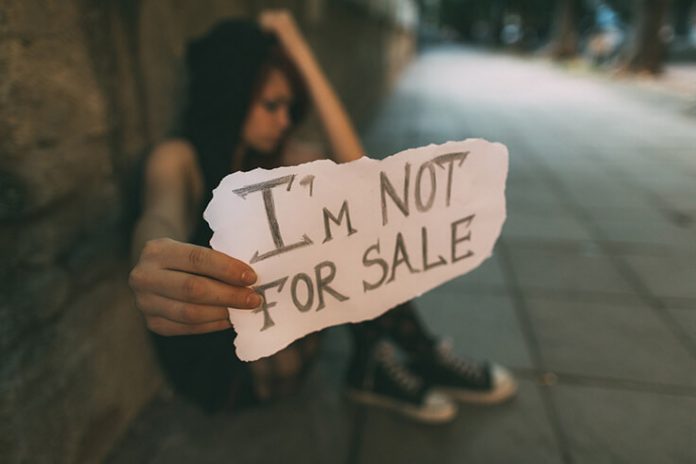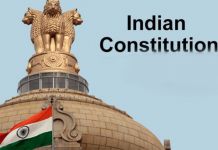This article is written by Nishtha Garhwal, a student of Alliance School of Law, Bangalore. The article talks about the abuse and exploitation faced by the sex workers who are picked during raids or rescue operations. The article also discusses how the anti-trafficking strategies lead to exploitation and torture of the sex workers instead of providing them protection.
Table of Contents
Introduction
In history, the practice of slavery was very prevalent, however, it had been eliminated from the current society. History found its way of repeating itself through trafficking. The Trafficking of Persons (Prevention, Protection, and Rehabilitation) Bill, 2018 had been approved and passed by the Lok Sabha in 2018, however, this Bill never got introduced in the Rajya Sabha. The 2018 draft of the Bill was criticized on the ground that it seemed to combine sex work as well as migration along with trafficking. However, the Union Ministry of Women and Child Development have invited suggestions for the recently introduced bill, that is, The Trafficking in Persons (Prevention Care and Rehabilitation) Bill, 2021. The objective of the Bill is to prevent counter-trafficking in persons. It specifically focuses on women and children and seeks to provide them with care and protection.
The previous draft of the Bill in 2018 was dealing with the victim’s rescue, protection as well as rehabilitation, however, the 2021 Bill has an extended scope and also includes offenses that take place outside India. The Bill seeks to make the National Investigation Agency (NIA), the Central investigation authority in order to look into such offenses. The 2021 Bill applies to all the offenses related to trafficking in persons along with cross-border implications. The various anti-trafficking strategies like forced raids, rescue, rehabilitation, and criminalization have been brought to attention by the Bill. The Bill raises the question as to whether these strategies are really the solution for the issue of human trafficking.
As the lives of sex workers have constantly been affected by the flawed anti-trafficking laws and strategies, serious apprehensions are raised by the declassified previous drafts of the Bill in addition to the experiences that arose from the implementation of the Immoral Traffic (Prevention) Act, 1956 (hereafter referred to as ITPA). Despite these apprehensions, the claim of some people who were involved in the drafting of the Bill like the government, some anti-trafficking organizations, and activists is that the consenting adults who voluntarily go into sex work would not fall under the purview of this bill.
Therefore, unless the adult consenting sex workers who voluntarily undertake sex work with their clients are excluded from the ambit of the Bill, large-scale human rights violations would keep on continuing in the name of anti-trafficking norms.
Sex workers bearing the brunt of violence
The sex workers have to face violence inflicted by law enforcers and anti-trafficking groups in the name of anti-trafficking laws and strategies. The sex worker rights’ activists in India who had gathered some anecdotal information reveal that many of the women who have been rescued and rehabilitated go back to sex work again. These instances raise serious questions like why do women who were forced to indulge in sex work voluntarily return to sex work and why do women who entered sex work because of lack of skills voluntarily return to sex work even after being taught the skills to pursue some other work. Therefore, it becomes very important to understand why this happens.
The root cause of the above issue can be found in the law and its implementation on the ground. Since the law enforcement authorities have the right to exercise arbitrary powers, they often subject the sex workers to violence during raids and also during ordinary times. The ITPA has the terms ‘Immoral’ and ‘Traffic’ in its name itself which suggests that trafficking is not an issue of a criminal offense but it is an issue of morality. Therefore, it can be inferred that the anti-trafficking strategies wrongly assume that no woman would enter sex work out of her own volition.
Thus, it is evident that violence is inflicted on the sex workers in the name of raid and rescue operations.
Infantilizing adult women
As per Section 17 (2) of the ITPA, a rescued woman as a result of raid or rescue operations can be handed over into the safe custody of her parents, guardian, or husband. Adult women who have voluntarily consented to pursue sex work also fall under the purview of this Section. On being satisfied with the suitability and social background of the parents, guardians, or husband, the magistrate can issue orders for granting custody of such a woman to them.
This particular Section of ITPA is devitalizing for those women who are adults and are living independently of their parents, guardians, or husbands. Many among these women are the heads of their household who are earning to provide daily bread and basic facilities to their families.
There are many instances where the adult woman had not told her family that she is involved in sex work in order to earn a livelihood. In humiliating circumstances, if such a woman is directed by the magistrate to produce her parents, guardian, or husband, she is forced to contact her family members. In many cases, the custody of such a woman is given to her parents, guardian, or husband and she is compelled to sign an affidavit that she will not indulge in sex work in the future.
The most common strategy that is adopted in order to address and fight trafficking in women and girls is raid and rescue operations. However, these strategies hardly address the issue of trafficking and rather lead to large-scale human rights violations. It also exposes women to exploitative practices and enhances their vulnerability, for instance, falling into debt bondage.
The raids that are conducted indiscriminately pick even the women who are voluntarily involved in sex work, and are forcibly rehabilitated through incarceration, and they are counselled to leave sex work.
Despite having no source of income, due to incarceration, the women who are released from the rehabilitation homes have to pay huge fees to the lawyers, for surety for bail, bribes for officers in addition to the daily expenses and thus, they have to borrow money and consequently have to incur huge debts. It can be observed that the raid and rescue strategies that were designed in order to help women actually lead them to be trapped in a cycle of debt bondage which is quite ironic.
The anti-trafficking strategies which were adopted by keeping some objectives in mind like rescuing the victims of trafficking, creating a better livelihood for them, and prosecuting the people involved in trafficking, have certainly failed to achieve these objectives. This conclusion can be drawn from the torture and exploitation the sex workers are exposed to by the law enforcement agencies.
Ineffectiveness of anti-trafficking strategies
The police, NGOs, and other organizations who are involved in ordering as well as conducting raids and rescue operations are usually not very sensitive to the individuals they encounter during these operations. There is an unalterable presumption in the mind of these people that the people they are attempting to rescue are victims of trafficking and no one is involved in the sex work out of their own volition. They refuse to listen to those who are being rescued.
Many of the women who are rescued return to sex work after being released from correction homes. These include both the women who have been trafficked to enter into sex work and the women who have voluntarily entered into sex work out of their own will. Thus, it is clear from such things that the rescue and restore missions have proven to be indiscriminate, violent, and destructive for the lives of the sex workers. In addition to this, these strategies have proved to be ineffective in dealing with the problems of minor as well as adult women who are forced to enter into sex work.
Reasons to stand against the criminalization of sex work
It is important to note that sex work and sex trafficking are two different things. The victims of trafficking are forced to enter into sex work without their consent. They are coerced to indulge in this work. The sex workers have to face violence, exploitation, torture, and trafficking. On the other hand, there are some who voluntarily indulge in sex work.
Since laws related to sex work are vague in India, the opportunities for violence are enhanced. Due to the fear of arrest and other consequences, the sex workers who suffer from exploitation and violence often choose not to report this to the police station. Although prima facie, it appears that the criminalization of sex work is beneficial for the sex workers, its implementation leaves the sex workers with no other option than to work in isolated locations and conditions so as to escape from policing of the areas of business. This enhances their vulnerability to abuse and exploitation.
As a result of shame involved in the work, and the fear of judgment, the sex workers often chose not to reveal that they are involved in sex work irrespective of the fact that whether they are into this work by choice or coercion. These sex workers already live in poor economic conditions. If they report the violence and exploitation they have been subjected to and any kind of fine or cost is incurred on them, this would further worsen their economic condition and make them pauper. Therefore, such things also enhance the vulnerability of sex workers to trafficking and other means of exploitation.
Although under the Immoral Traffic (Prevention) Act, 1956, sex work had not been considered a criminal offense, a stigma is attached to the sex workers. This leads to the marginalization of sex workers. The sex workers have to face human rights violations, physical and sexual violence, discrimination in accessing health care, and harassment from the law-enforcing authorities. Thus, it is evident that socially, culturally, politically as well as economically, sex workers are stigmatized and marginalized in society. It can be observed that the usual practice is that someone would speak on behalf of the sex workers and they do not find a platform to speak for themselves. Thus, this results in their lack of recognition and lack of enforcement of their basic human rights.
Sex workers against human trafficking
The sex workers collective in India, the Durbar Mahila Samanwaya Committee comprised of over 65,000 members, demonstrated the positive potential in involving the sex workers in anti-trafficking initiatives. It can be done through the formation of self-regulatory boards constituting sex workers, health workers, social workers as well as local government officials. When a new sex worker enters the market, such a collective would inform their new colleague about their rights and can ensure that such a colleague has not entered into the business by coercion or force.
The sex workers and their organizations could help in avoiding the exploitation, torture, and abuse of their colleagues. The sex workers meet each other on many occasions and get to know their colleagues. Such personal contacts help to keep them safe and prevent them from being subjected to any wrong. In addition to this, the sex workers organization campaign for the decriminalization of sex workers. This would ensure a safer environment for the sex workers and will also decrease their vulnerability and risks. The sex workers-led organizations also share information with each other regarding the rights of sex workers, practical knowledge about the business, and the laws and policies that govern sex work. Thus, sex worker-led organizations can also be effective in controlling the menace of trafficking in persons and such organizations would also prevent the sex workers from being exploited and abused.
Conclusion
The police raids and rescue operations conducted as a means to fight the menace of trafficking in persons have failed to achieve their goal. The police have the power to arrange and conduct raids and often these raids expose the sex workers to abuse and exploitation instead of providing them protection. These things would be more evident if the voices of these women are amplified.
The violation of human rights is both a cause as well as a consequence of trafficking in persons. If sex work is decriminalized, it would promote the recognition of the basic rights of sex workers and thus, would be helpful in reducing the instances of trafficking. The sex workers who face abuse or violence will also be willing to seek help from the law enforcement authorities without the fear of any consequences for simply trying to survive. They can also create some peer networks that can enable them to live in a safer environment. Therefore, placing the protection of human rights first would be an effective step for addressing and combating the issue of trafficking.
References
- https://www.opendemocracy.net/en/beyond-trafficking-and-slavery/improving-anti-trafficking-strategies-why-sex-workers-should-be-inv/
- https://www.epw.in/engage/article/raid-and-rescue-how-anti-trafficking-strategies-increase-sex-workers-vulnerability-to-exploitative-practices
- https://journalofethics.ama-assn.org/article/decreasing-human-trafficking-through-sex-work-decriminalization/2017-01
Students of Lawsikho courses regularly produce writing assignments and work on practical exercises as a part of their coursework and develop themselves in real-life practical skills.
LawSikho has created a telegram group for exchanging legal knowledge, referrals, and various opportunities. You can click on this link and join:
https://t.me/joinchat/L9vr7LmS9pJjYTQ9
Follow us on Instagram and subscribe to our YouTube channel for more amazing legal content.
 Serato DJ Crack 2025Serato DJ PRO Crack
Serato DJ Crack 2025Serato DJ PRO Crack











 Allow notifications
Allow notifications


